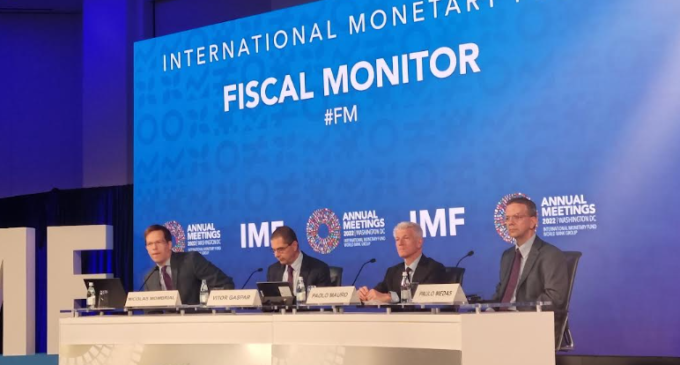By Yunusa Abubakar
The International Monetary Fund (IMF) has urged Nigeria, and other oil exporting oil countries to take advantage of rising commodity revenues to address some of their critical needs.
It also tasked the Nigerian government to improve domestic revenue mobilization in order to withstand current global economic shocks.
Paulo Medas, Division Chief, Fiscal Affairs Department of the IMF gave the charge today in Washington. According to Medas, Nigeria’s revenue generation is extremely low and puts the government in a tight corner with respect to delivering basic services and responding to global headwinds.
He said the IMF had not seen any improvement in Nigeria’s deficit due to petrol subsidy payments.
“Many governments are facing double-digit inflation. And in this respect, fiscal policy needs to help monetary policy and work together to ensure price stability, it is absolutely critical for stable growth. Countries like Nigeria, especially those oil exporting countries, can take advantage of rising commodity revenues to address some of their needs.
“Another aspect, I would say, Nigeria’s case was where tax revenues are really low. And this really undermines the capacity of the government to react to shocks and provide key services.
So I would say in the case of Nigeria, the priority is in need to increase domestic revenue generation. You need to increase the State’s capacity to address the needs of the country and these will also help make fiscal policy more consistent to ensure economic stability.
While high inflation, debt and revenue challenges are not peculiar to Nigeria alone, the IMF division chief advised African nations to set priorities, block leakages, reduce waste and put resources into urgent needs. One is obviously putting resources into the most urgent needs. This has to be done together with the international community.
“Second, Africa already, before the pandemic, had a very low-level tax-to-GDP ratio. These levels have deteriorated… and this makes it much harder for governments to respond to crises, manage and deliver basic services, education, health and infrastructure. So it is important to step up the efforts of domestic revenue mobilisation and building capacity to respond to all these challenges.
“Third, improving the quality of spending and reducing waste is in different areas. For example, some countries cut on some state-owned enterprises, with government budgets and economy and most importantly, the need to improve social safety nets.
All these will help the government start with those in need while reducing inefficient and wasteful subsidies. So all these key priorities for governments to do, but it’s not going to be enough in areas where countries face food insecurity and others.”
























